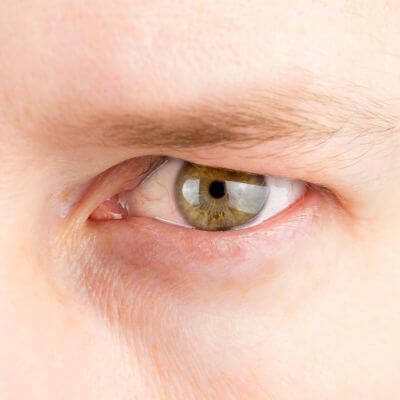Can You Correct A Droopy Eyelid?
As we age, gravity affects every part of our body, even the skin and muscles of our eyes. The skin around our eyes loses elasticity and the muscle tone in our eyelids decreases. Over time, this may result in a droopy eyelid.
Droopy eyelids result from the weakening or stretching of the levator muscle. This impacts the ability to keep the eyes open. While aging is a common factor, there can be other causes. Corrective surgery, like blepharoplasty, adjusts the levator muscle. Insurance often covers procedures for functional reasons. Nonsurgical options, such as Botox or fillers, also exist.
What Causes Droopy Eyelids?
The muscle that lifts the eyelid is called the levator muscle . When it stretches or weakens, it becomes harder to keep the eyes fully open. This may occur in one or both eyelids as we age.
Age isn’t the only cause of a droopy eyelid ( ptosis) . There’s also congenital ptosis , which is when you’re born with ptosis. In this case, the eyelid muscles fail to develop properly in utero.
In addition, medical conditions can also cause ptosis, such as:
- Eye injury
- Nerve damage
- Tumors
All of these can cause the upper eyelid to droop lower than normal. Regardless of the cause, droopy eyelids aren’t only a cosmetic concern. If a droopy eyelid covers the pupil, then your vision will be affected. Ptosis can restrict or even completely block normal vision.
Can Ptosis Affect Both Eyes?
Ptosis commonly occurs in individuals as they age. While it can manifest at any age due to various factors, it is more prevalent in the elderly. Age-related ptosis typically becomes noticeable in people over 60. This is due to the supporting structures of the eyelid weakening over time. Aging can lead to a gradual descent of the eyelid, affecting its appearance and function. Surgical intervention may be considered for severe cases. It helps improve both cosmetic concerns and vision obstruction.
Is Ptosis a Medical Concern?
Yes, ptosis is a medical concern, especially for men . Drooping eyelids can lead to:
- Visual impairment
- Eye strain
- Looking tired
Severe cases may interfere with normal vision. This may require medical intervention, such as surgery, to lift the eyelid. In these cases, surgery will improve both the functional and aesthetic aspects of the eye. Timely evaluation by a healthcare professional is crucial for proper diagnosis and management.
Surgery for a Droopy Eyelid
Surgery can correct a droopy eyelid as well as improve vision and appearance. Treatment is considered medically necessary when it affects your vision. This means that insurance often covers the procedure. Many patients are surprised when they hear that insurance typically covers eyelid surgery. This is due to the common misconception that eyelid surgery is purely cosmetic.
Ptosis surgery ( blepharoplasty ) is an outpatient procedure in your ophthalmologist’s office. Depending on the severity, we make adjustments to the lid’s levator muscle. To help the eyelid lift properly, extra skin or fat from the eyelid may also be removed. For more severe cases, the muscle may need to be strengthened and reattached to the eyelid.
Patients undergoing surgery may also have the skin beneath their lower eyelids tightened. This reduces the appearance of sagging eyebags. While blepharoplasty may be medically necessary, this procedure is not. Insurance will not cover tightening of the eyelids due to it being a cosmetic procedure.
Nonsurgical Procedures for Sagging Eyelids
In addition to surgery, there are nonsurgical procedures that can help correct the appearance of droopy eyelids or sagging under-eye bags. Injections such as Botox and fillers can help tighten sagging skin and smooth out wrinkles around the eyes.
Are you concerned about drooping eyelids? Contact us today to schedule your appointment!
Sagging eyelids occur when the muscle weakens or stretches. This prevents the eye from fully opening. Besides aging, various factors can contribute to this condition. Procedures like blepharoplasty are often covered by insurance for functional reasons. Non-surgical alternatives, like Botox or fillers, are also available. Baptist Eye Surgeons provides a range of procedures to address your eye care needs.
Baptist Eye Surgeons is an ophthalmological practice dedicated to providing quality eye care. We provide a range of services, from a routine comprehensive eye exam to the treatment of complex eye diseases. For an appointment or directions to our locations in Knoxville, Morristown, and Sevierville, visit our website . Call us at 865-579-3920 for more information or visit us online to schedule an appointment .
*This blog has been updated since it was originally published in August of 2018 for clarity and fresh information.






